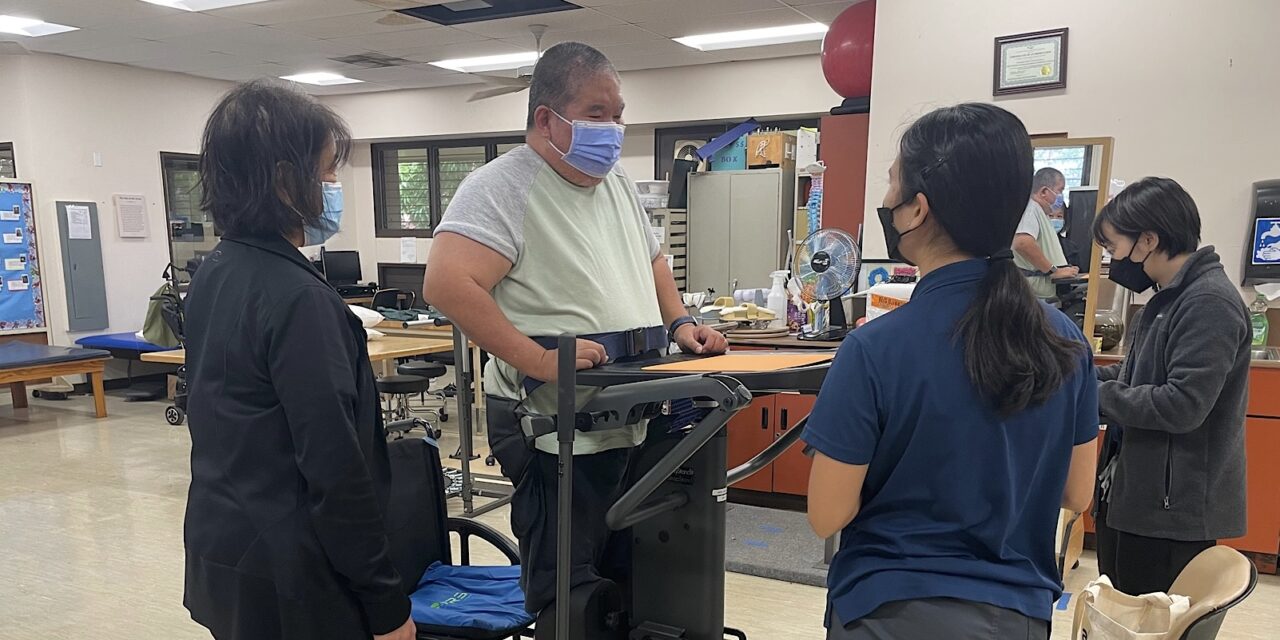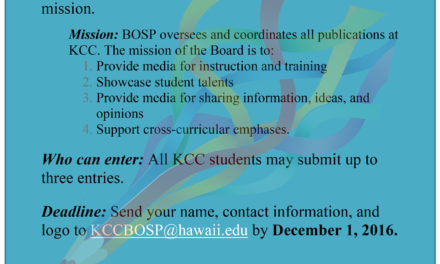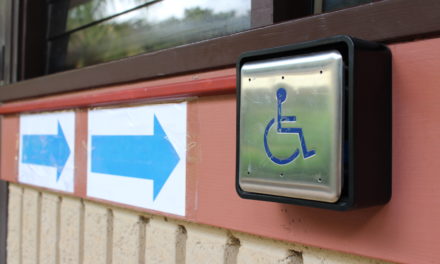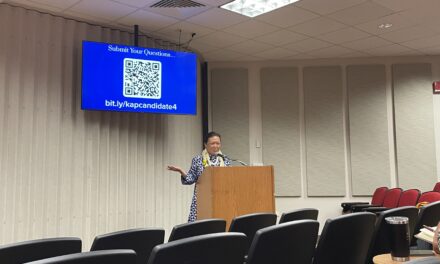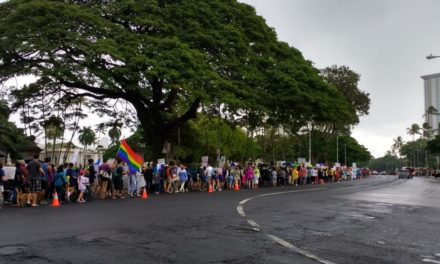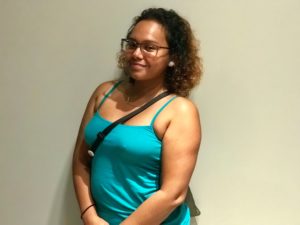KCC students help patients at the pro bono clinic with the supervision of a fieldwork educator and gain experience in their field, helping them in their classes and preparing them for graduation. (Photo by Shawna Takaki)
By Shawna Takaki | Staff Writer
The Occupational Therapy Program runs a pro bono clinic on campus that helps people referred to them by various hospitals and out-patient clinics. Students at Kapi‘olani Community College can earn associate’s degrees in Occupational Therapy Assisting through a competitive program that includes working at the free clinic.
The clients have typically exhausted the amount of sessions of therapy insurance covers but could benefit from help.
Nolan Arasato, a patient with chronic inflammatory demyelinating polyneuropathy, has attended the clinic for four years now. He was referred by a neighbor who worked as an occupational therapist at Queen’s and has learned many new exercises through the sessions he’s attended.
In one session, Arasato was helped out of his wheelchair and into a standing frame. He was supported through the process of making a sandwich while standing.
“It’s better than the medically paid therapy that I get,” said Arasato. “The attention of the instructor and the students together gets me better treatment here than an actual rehab facility.”
In the past, students visited his house and checked it to create a report on how to make it more handicap accessible. A contractor used the report to remodel his bathroom to better fit his needs.
“It takes very special people to commit their lives to helping other people,” said Arasato. “I’m really thankful for that.”
The clinic is active in both the spring and fall semesters. Patients come to the clinic for around 15 sessions a semester, typically 60-minutes or longer each, and are helped by students supervised by professional occupational therapists or occupational therapy assistants.
Due to their experience with the clinic, students benefit from increased ability to complete the program and pass exams, as well as get work after graduation. Many students learn better with hands-on experience and the clinic helps students put what they learn into practice.
“Getting actual interaction with the patients helps us, as well as having instructors actually here,” said Ikumi Eichelberger, a first-year student working at the clinic. “We get to plan an intervention with advice from the fieldwork educators.”
Two students work together, with one taking a more active role with the patient and the other taking documentation on the process. In the program, they engage in four clinical programs as well as didactic courses to prepare them for the work of occupational therapy.
The program director and interim academic fieldwork coordinator is Tiffany-Joy Kawaguchi, who can be contacted by email at tkawagu@hawaii.edu.
“Sometimes people hear about us and self-refer, but we’ll still go back to the doctor and ask for a prescription to ensure that it’s safe to see the client,” said Kawaguchi.
People eligible for sessions include those with spinal-cord injuries, stroke, brain injuries, Parkinson’s and more. To reach out to the clinic as a possible client, email clinic coordinator Erin Arakaki at arakakie@hawaii.edu.

